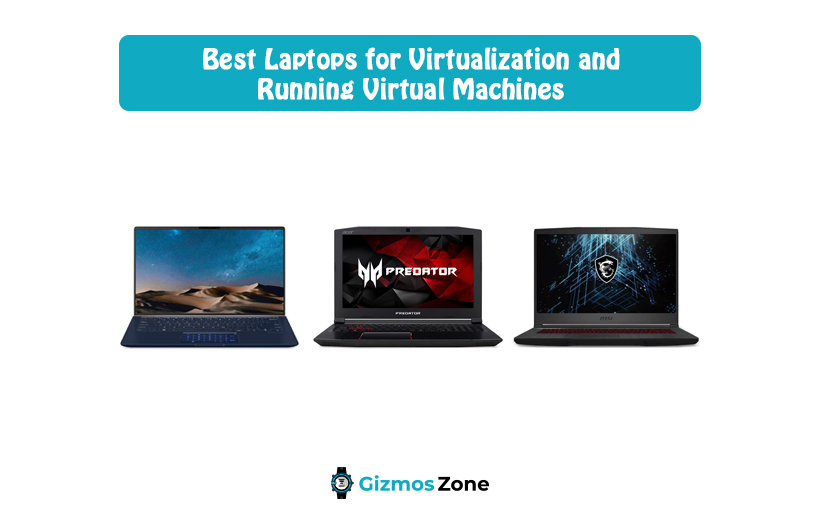Virtualization, or the concept of running virtual machines on your computer, has been around for some time now – and it is only getting more and more popular with time. This is something that people who are into hardcore software development and testing tend to use. There are also other professions which require people to use certain software that are available on a different OS and hence people prefer using Virtual Machines over getting a new system. Over the course of this article, we will discuss the top 11 best laptops to run virtual machines.
Running virtual machines is serious business! If you have ended up on this web page, chances are that you are someone who is keenly interested in running a virtual machine. For those who aren’t really into this, let us tell you some reasons as to why people tend to use virtualization:
Firstly, this is a great option for those who want to develop software and test it across platforms. Imagine you are a coder who is creating some software for Windows OS. However, you also want to release MacOS and Linux versions of the same software. Once your code for one OS is ready it won’t need massive changes and you can then have it adapted for other operating systems too.
Once you have prepared the software for other Operating Systems, you will need to test it too – to know if there are any bugs in what you’ve created. In order to test that, you can run virtual machines on your regular Windows PC to see how it would perform in other versions of the Windows OS, as well as other Operating Systems. Sometimes, developers and testers even tend to run multiple virtual machines at the same time.
This isn’t limited only to developers and testers. Sometimes, people even need to run a VM to make use of certain software that won’t run in their regular OS. Virtualization isn’t really meant for the casual everyday user, but for a specialized set of people. However, those who need it really need it.
Running VMs such as VMware and Oracle on your laptop will require you to have a high-power device which comes with an impressive configuration. You will need a powerful CPU and lots of RAM and storage space in order to run Virtual Machines smoothly. This is why we have come up with this list of the 11 best laptops for virtualization which will help you run all your VMs with ease.
Best Laptops for Running Virtual Machines in 2023
This is a list that we have carefully curated after talking to a lot of developers and coders, and people who tend to use VMs. We have tried to provide a very detailed review here, which covers every aspect of the laptop. Do note that these aren’t ranked in any particular order and each of them makes a strong case for itself. You can directly buy these laptops from Amazon, to which we have linked them for your ease and convenience.
We hope that this list helps you make a better decision.
Image
Product
Features
Price
Acer Predator Helios 300
Check Price on Amazon
Lenovo ThinkPad X1 Carbon
Check Price on Amazon
MSI GF65 Thin
Check Price on Amazon
ASUS ZenBook 14
Check Price on Amazon
2019 Apple MacBook Pro
Check Price on Amazon
Dell XPS 15 9570
Check Price on Amazon
Asus ROG Strix SCAR II
Check Price on Amazon
HP ZBook 15 G6
Check Price on Amazon
Gigabyte AERO 15-X9-RT5P
Check Price on Amazon
ASUS ROG Strix G15
Check Price on Amazon
Dell XPS 9310
Check Price on Amazon
1. No products found.
No products found.
- CPU: 7th Generation Intel Core i7
- RAM: 16 GB
- Storage: 256 GB SSD
- Display: 15.6 inches
- GPU: GeForce GTX 1060-6GB
- Battery Life: Up to 7 hours
Since this is the first one on our list, let us begin by letting you know up-front that laptops for virtualization tend to be quite expensive, often running into a price point of $2000 or beyond. This is why when we find a laptop of about $1500 to $1700, we consider it to be a ‘value for money’ proposition, which is what the Acer Predator Helios 300 exactly is.
The laptop provides you with a powerful processor – a seventh-generation Intel Core i7. This might not be the latest-generation processor, but it is still a good enough option which helps get the job done when it comes to running virtual machines. The laptop also features 16 GB of RAM along with a 256 GB SSD storage. In case you want to expand your storage later, there’s another slot which is left vacant. Together, these two give you enough power to store and run virtual machines on your laptop.
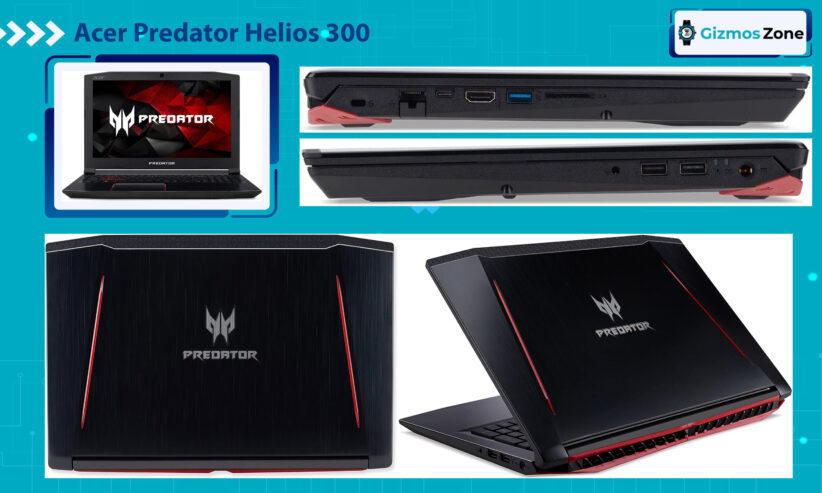
Not only is this one of the best laptops for virtual machines, but it is also quite a powerful gaming laptop, and one which can be used to run all the latest games in 2023. To drive home the point that this is a gaming laptop, it also features a GeForce GTX 1060 GPU from Nvidia, which comes along with dedicated 6 GB memory. One problem that this laptop faces, much like most other gaming laptops, is that it tends to heat up quite a bit – you might need to add an extra cooling pad to this laptop while playing heavy duty games. The
Acer’s predator series of laptops are also built quite well. This one comes with the classic Predator branding on top, along with a metal chassis and backlit keyboard, which gives the laptop a very unique look and a premium feel. This is also a very durable laptop. Lastly, one more thing that really impresses us about the Acer Predator Helios 300 is that it comes with a decent 7 hour battery life – a rare achievement for a gaming laptop, as most of these laptops tank out at about
Pros
- Very well designed – unique and premium look
- Vacant slot for expandable storage
- Priced lower than most other similar laptops
- Decent battery life for a gaming laptop
Cons
- Tends to heat up on prolonged usage
2. No products found.
No products found.
- CPU: 8th Generation Intel Core i7
- RAM: 16 GB
- Storage: 512 GB SSD
- Display: 14 inches
- GPU: Intel UHD Graphics 620
- Battery Life: Up to 15 hours
Lenovo’s ThinkPad series of devices are well-known to be some of the most reliable laptops all over the world. The X1 Carbon is yet another example of Lenovo’s supremacy in this series. A very powerful laptop that suits the needs of anyone looking forward to set up virtual machines, let us take a closer look at all the specs that are at offer here:
The laptop comes with an eighth generation Intel Core i7 processor – which is just about good enough to get your virtual machines running. The processor is powerful enough to run multiple operating systems at the same time without slowing down the core functioning of your main OS. It also performs really well, but some users have reported that it might heat up upon prolonged usage.
Apart from the powerful processor, the RAM/Storage combination here is also pretty good. The laptop features 16GB RAM along with 512GB SSD storage space. The storage is decent enough to store the large number of files that are needed to run multiple operating systems. Other than that, the laptop is also quite well-designed. It is lightweight and has keys that are very comfortable for typing. Not only are they spaced out really well, they also have the right amount of depth that allows you to type really comfortably.
The 14-inch touchscreen display and Intel UHD Graphics 620 make it an average laptop for all your regular office-work and social media and emails, though not quite an impressive option if you are into gaming. This is a decent device to enjoy some YouTube videos or to check out some Netflix shows. Lastly, another thing that we found really impressive about this laptop was the fifteen-hour battery life that you get.
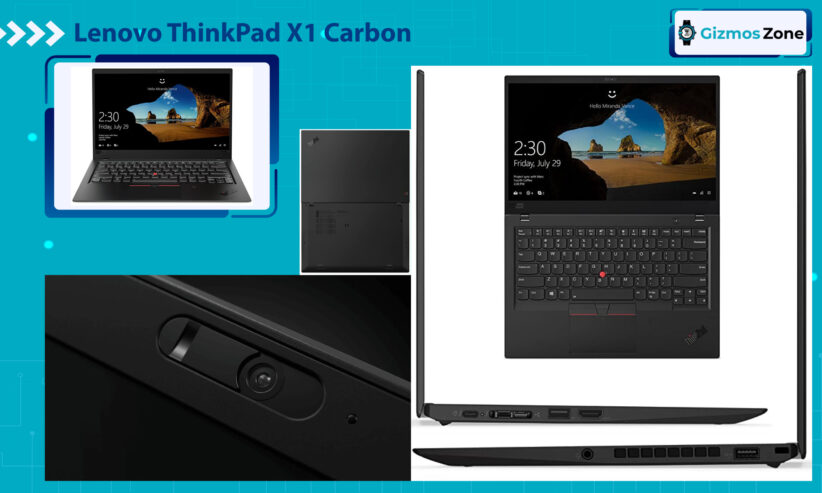
Pros
- Decent processor, RAM and storage combo
- Lightweight and well-designed laptop
- Excellent 15-hour battery life
Cons
- May heat up if you run multiple instances of virtualization software
3. No products found.
No products found.
- CPU: 10th Generation Intel Core i7
- RAM: 64 GB
- Storage: 2 TB SSD
- Display: 15.6 inches
- GPU: NVIDIA GeForce GTX 1660 Ti 6GB GDDR6
- Battery Life: A little above 4 hours
Otherwise a very popular name, but one that doesn’t really catch the attention of the mainstream discourse when talking about some of the best laptop brands out there, MSI’s GF65 Thin is perhaps the single most suitable option for anyone out there looking for ‘extreme’ power. And when we say extreme, we really mean it. Just take a look at the specs that are at offer.
This laptop comes out with the latest, 10th Generation Intel Core i7 processor, along with a jaw-dropping 64GB of RAM. The sheer size of RAM makes it the best laptop for running virtual machines in 2023. When you add the latest and the most powerful processor from intel into the mix, it is even more impressive! If you thought this was enough, you probably didn’t look at the 2TB SSD storage. With that kind of a space, you’ll probably never need additional storage ever again.
This is an excellent laptop for running practically any kind of software. It is particularly of use for heavy-duty tasks such as video editing, and as the primary theme of this article suggests – for virtualization tasks and running virtual machines. Software such as VMWare can run easily on this and you can run multiple instances without any problem too, given the large memory and storage space.
There’s a backlit keyboard on the laptop which gives it quite a unique look. The MSI GF65 Thin comes with the NVIDIA GeForce GTX 1660 Ti graphics card, along with 6GB GDDR6 dedicated memory. You get to experience the true magic of this GPU on the 15.6 inch display, which comes with a very thin bezel. The laptop comes preloaded with Windows 10 Home OS, and offers a 3 year warranty as well.
Pros
- Massive RAM/Storage Combination
- Latest generation Intel i7 processor
- 3-year warranty period
Cons
- Unimpressive battery life
4. No products found.
No products found.
- CPU: 8th-Gen Intel Core i7
- RAM: 16 GB
- Storage: 512 GB SSD
- Display: 14 inches
- GPU: Intel UHD Graphics 620
- Battery Life: About 12 hours
ASUS’s ZenBook series of laptops are among their top-of-the-line machines and always have something really unique to offer. This is the company’s ZenBook 14 – a laptop where they’ve truly experimented with a lot of things, particularly by introducing the ‘ScreenPad’. However, this particular variant that we are reviewing is without the ScreenPad gimmick. This is because since this is the first laptop with ScreenPad, it is still too new and gimmicky here. The ScreenPad actually finds meaning in the latest ZenBook from the company (the ZenBook Duo) where it acts as a second screen.
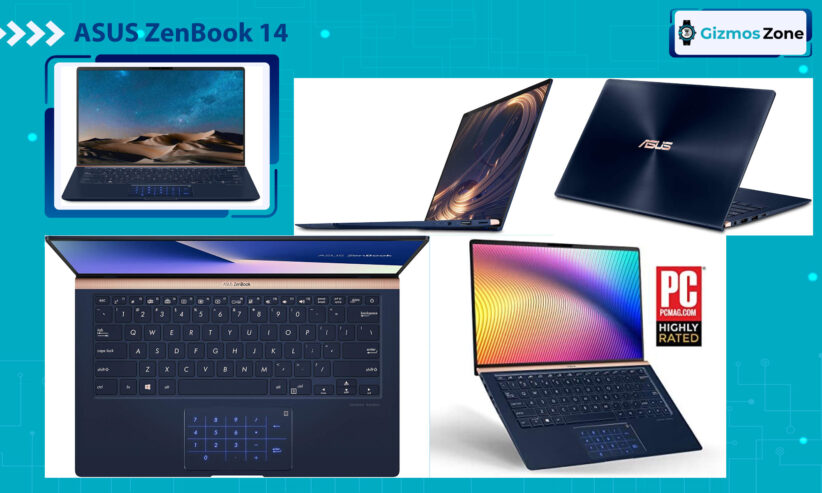
In this variant, you get an 8th-Gen Intel i7 processor, along with 16 GB of RAM and 512 GB of storage space. Together, these three provide the perfect base for you to run all your favorite software on, and particularly in the case of this article, virtual machine software. The processor provides a decent base that makes sure your laptop always has enough power to run the operating systems.
To their credit, ASUS has actually developed a laptop which comes with a very good display. There’s a 14 inch Full HD screen which comes with extremely thin bezels. The laptop also comes with an ‘enhanced’ audio performance, though we didn’t really feel much of a difference between this one and other similar laptops.
ASUS has also nailed it with a near-perfect keyboard here. The company has introduced an ‘Ergo Lift’ design, which enhances the way we type. The keypad here doubles up as a NumPad if you need to use it as one. The laptop also doesn’t heat up quite as much as some other similarly priced devices.
Pros
- Excellent design – the outer shell, the display and the keyboard are all designed really well
- Powerful enough for all your virtualization needs
- Doesn’t heat up even on prolonged usage
Cons
- The ScreenPad is just a gimmick in this laptop
5. No products found.
No products found.
- CPU: Ninth Generation Intel Core i9
- RAM: 16 GB
- Storage: 1 TB SSD
- Display: 16 inches
- GPU: AMD Radeon Pro 5500M Graphics with GDDR6 memory
- Battery Life: Up to 11 hours
For those looking forward to running virtual machines, but not on the windows platform, this is the best laptop for virtualization for all your needs. There’s nothing about the Apple MacBook that we can say that hasn’t been said already, so we’ll talk strictly from the point of view of running virtual machines on it.
You can use apps such as VMWare Fusion and Parallel Desktop to run virtual machines on this laptop. What makes this laptop particularly powerful and one of the best laptops for virtualization is the fact that it comes with Intel’s Core i9 processor which is Intel’s most powerful offering till date. The laptop combines the power of a ninth-gen Intel Core i9 along with 16 GB of RAM, which gives it incredible power.
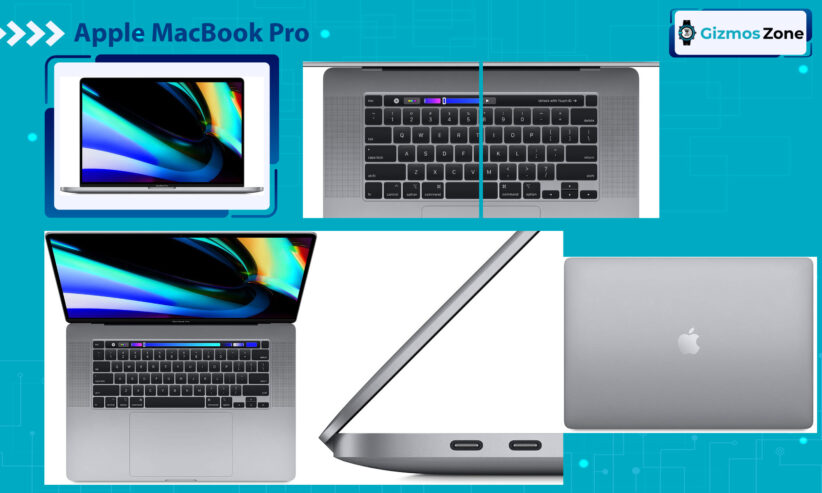
Given that this is a MacBook Pro, you get the touch bar in this laptop, which is a major productivity booster, and allows you to do much more than a regular laptop would. Besides that, MacBook Pro (2019) comes with a sixteen-inch retina display, which showcases colors in a very vivid manner which no other laptop can possibly replicate. What also aids this laptop in displaying the kind of colors that it does is the AMD Radeon Pro 5500M GPU with GDDR6 memory, an excellent choice from Apple.
All in all, the MacBook pro leaves you with no areas to complain about. A large display, a powerful processor, 1 TB SSD storage, a laptop that neither heats up nor slows down, even when you are running virtual machines on it. It’s also got a long, 11 hour battery life which should take care of all your needs. One of the most perfect laptops for those not willing to use a windows-based laptop for running virtual machines.
Pros
- Uses Intel’s powerful i9 Processor
- Excellent 16-inch retina display
- Long 11 hour battery life
Cons
- Expensive
6. No products found.
No products found.
- CPU: 8th Gen Intel Core i7
- RAM: 32 GB
- Storage: 1 TB SSD
- Display: 15.6 inches
- GPU: NVidia GeForce GTX 1050 Ti 4GB dedicated graphics
- Battery Life: 5 to 7 hours
Dell’s XPS series of laptops are their flagship devices and generally feature the best specs that you can get on a Dell laptop. The Dell XPS 15 9570 is no exception and it is a very powerful device for all your home and office solutions, as well as one of the best laptops for running virtual machines. If you don’t believe this claim, just look up the specs!
Powered by an Intel Core i7 processor of the eighth generation, this laptop has all that it takes in the processor front. However, the processor is only the first good thing about Dell XPS 15 9570. When you add a massive 32GB RAM along with this processor, what you get is an absolute beast of a performer which can run multiple operating systems at the same time without any hassles.
The laptop comes with a large 15.6 inch display and makes use of NVidia GeForce GTX 1050 Ti 4GB dedicated graphics. Together, these make it a decent laptop for gaming too and you can run all your favorite games here. The display is actually quite bright and clear, and also supports touch-screen functionalities.
All in all, this is an all-round device, allowing you to do all your office work, acts as an entertainment machine and a gaming device, and is among the best laptops for virtualization, if you need to run multiple operating systems. The battery life lasts between five to seven hours, which is not the best out there, but it’s still better than having a laptop that won’t even last 4 hours.
Pros
- Good graphic card and display
- Excellent RAM at 32GB
- One of the best laptops for virtual machines
Cons
- Heats up when performing tasks involving a high processing power
7. No products found.
No products found.
- CPU: 8th Generation Intel Core i7
- RAM: 16 GB
- Storage: 512 GB SSD
- Display: 15.6 inches
- GPU: Nvidia GeForce RTX 2070 8GB GDDR6
- Battery Life: About 4 hours
ASUS makes some of the best and the most underrated gaming laptops. Their ROG series is of some repute in the gamer’s community, and this is the ROG Strix SCAR II from ASUS. It is quite a powerful machine that doubles up as a gaming laptop as well as one of the best laptops for virtualization, for those who intend to run virtual machines.
What enables this laptop to perform on both these fronts is the fact that it comes with some of the most powerful specs. These include an Intel Core i7 (8th Generation) processor, along with 16GB of RAM. Together, these two make a compelling case for any gamer. However, to make things even better, there’s also an Nvidia GeForce RTX 2070 8GB GDDR6 GPU that has been included in this laptop.
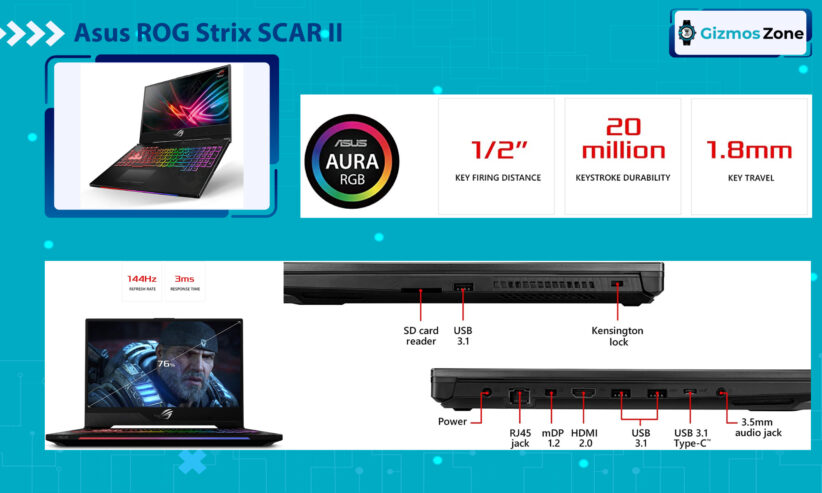
With a combination of GPU, RAM and processor like this, there’s practically no game in 2023 that you won’t be able to play on this laptop, making it a total gamer’s delight. There’s also a 15.6 inch, 144 MHz display, which allows you to get the most out of all your games. The laptop is also great for running multiple operating systems at the same time using virtual machines and you can run up to two of them at the same time before facing any slowdowns.
One drawback here, much like what you’d experience in practically any other gaming laptop, is the battery life. You get only about 4 hours over here which is way too less. However, in gaming laptop terms, that’s as good as it gets so one’s got to make peace with that for now.
Pros
- Good laptop for running up to two virtual machines at a time
- Powerful GPU, great for gaming
- Impressive display, can be used for video and graphic editing
Cons
- Poor battery performance
8. No products found.
No products found.
- CPU: 9th Gen Intel Core i7
- RAM: 16 GB
- Storage: 1 TB HDD
- Display: 15.6 inches
- GPU: Intel UHD Graphics 630
- Battery Life: 1 Day
How can a list of ‘best laptops’ about anything ever be complete without bringing up HP! This is the HP ZBook 15 G6, one of the finest and the most powerful of HP laptops that is around these days. This is something that you should get if you’re looking for a device that is really tough and durable, and doesn’t really heat up.
This fact that it operates at low temperatures makes it a lucrative purchase for people who are looking for the best laptops for virtualization needs. Running a virtual desktop on your laptop requires a lot of processing power, and every time someone needs a lot of processing power, a lot of heat is generated too. Here, that is taken care of really well.
Coming out into the markets with a 9th generation Intel i7 processor, along with 16GB of RAM, HP hasn’t missed a step here. Both these components are quite powerful and give quite an edge to the laptop. However, when you look at the storage, the laptop provides 1 TB of storage space, but that’s a hard disk drive and not an SSD-based storage, which is quite weird in 2023.
One more thing that is missing from this laptop from HP is a powerful GPU. While it comes with a very good offering from Intel, the Intel UHD Graphics 630, which is an integrated graphic processor, it doesn’t have a separate GPU which would allow you to play heavy-duty games. Nonetheless, this GPU is good enough for video editing and other basic tasks. The company claims a battery life of ‘1 day’ which is another major plus point.
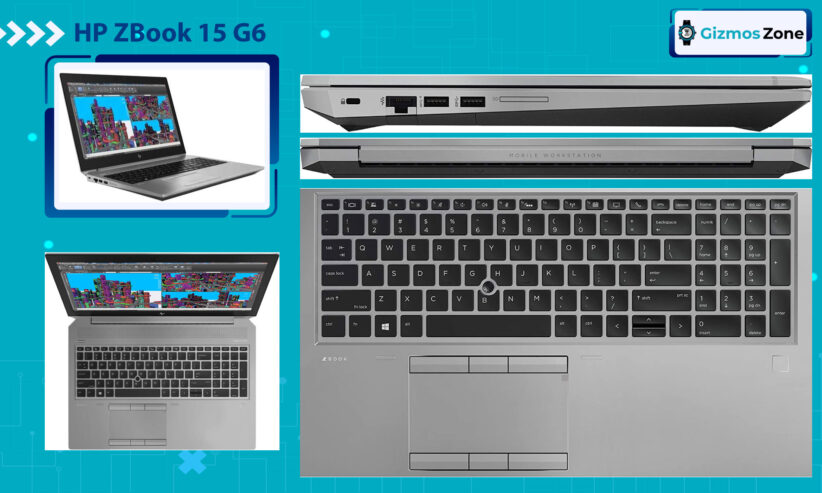
Pros
- Good processor and RAM combination
- Decent display
- Powerful 1-day battery life
Cons
- Doesn’t seem like a value-for-money offering with the lack of an SSD and a proper GPU
9. No products found.
No products found.
- CPU: 8th Generation Intel Core i7
- RAM: 16 GB
- Storage: 1 TB SSD
- Display: 15.6 inches
- GPU: NVIDIA GeForce RTX 2070
- Battery Life: Up to 8 hours
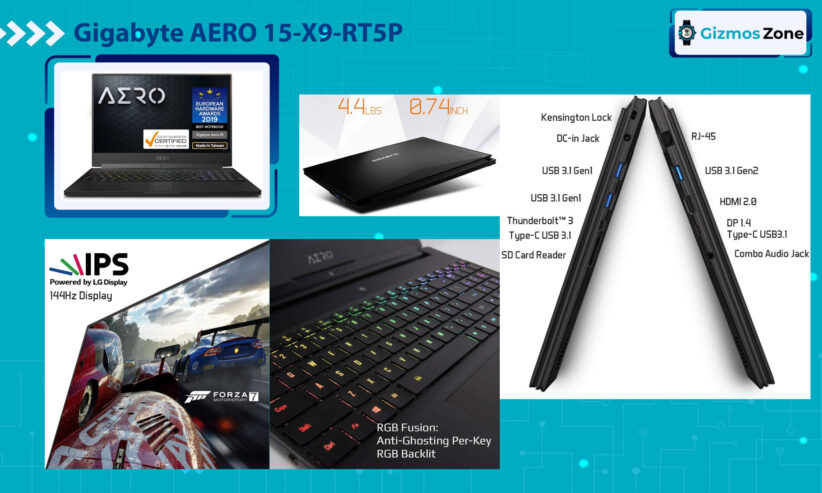
Here comes a $3000 laptop from a brand which not many people might have heard of. However, when it comes to heavy-duty performance and when it comes to getting the best laptop for virtual machines, the Gigabyte Aero 15-X9-RT5P is a very good contender to the top spot in this list.
This laptop is built like a tank! First off, it is a very durable product that can survive more than a few bumps and falls. It isn’t just a tough product, but a good looking one too, as it comes with a programmable RGB keyboard. Another thing here is that the camera isn’t placed on the top, but on the bottom part of the 15.6 inch screen, just near the hinge. This allows you to get thinner bezels on three sides, and get the maximum screen-space possible.
Gigabyte Aero 15 runs on the Intel Core i7-8750H (8th Gen) processor, which is a powerful offering by itself. This is further aided by 16 GB of RAM along with 1 TB of SSD storage (you see this HP? This is how it is supposed to be!). This is a very powerful laptop where you can run multiple instances of your virtualization software with ease and work on different operating systems at the same time.
Another impressive thing about this laptop is the GPU that it comes with. Gigabyte Aero 15 makes use of the NVIDIA GeForce RTX 2070 GDDR6 GPU, which comes with 8GB of dedicated RAM. This makes it not only a beast of a performer, but a very good gaming machine too. While the cost is a little too high, all the components, the durability and the performance totally justify it. The laptop also comes with an 8-hour battery life.
Pros
- Innovative screen design, giving maximum display space
- Powerful GPU, decent laptop for gaming
- Decent battery life considering the components
Cons
- Very expensive
10. No products found.
No products found.
- CPU: 10th Generation Intel Core i7
- RAM: 16 GB
- Storage: 1 TB SSD
- Display: 15.6 inches
- GPU: NVIDIA GeForce RTX 2070
- Battery Life: Up to 8 hours
Last on our list but not least by any measure, here’s another gaming laptop from ASUS’s ROG series. This time, this is the ROG Strix G15. The laptop, just like every gaming laptop should, carries a very attractive and unique look to it. The hinge has a lightning bolt-like cut to it, and you also have a backlit keyboard. The keyboard is textured and the WSAD keys have a special backlight, so that you can find them with ease while gaming.
Furthermore, this laptop carries 1 TB SSD storage, and 16 GB of RAM, making it a decent product in terms of the RAM/Storage fronts. Coming to what truly fuels the device and makes it one of the best laptops for virtualization software is the fact that it is powered by the latest 10th-generation Intel Core i7 processor. The laptop also features a decent cooling mechanism because it doesn’t heat up even when playing games or running virtual desktops.
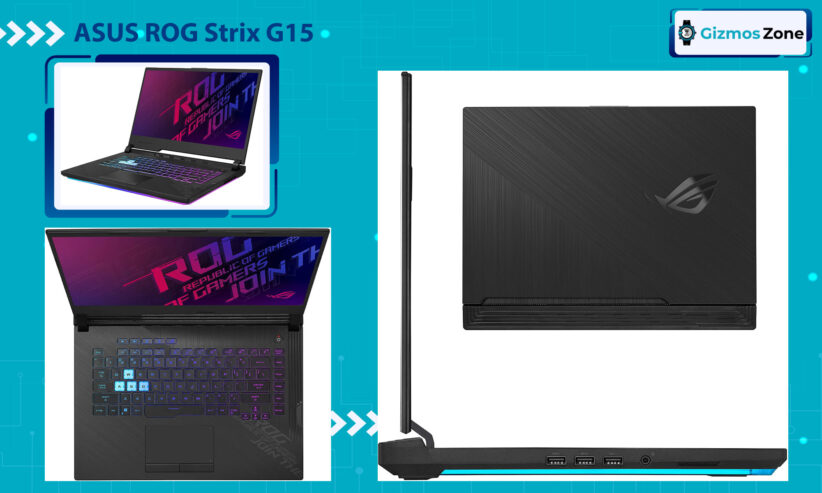
To further drive home the point of this being a ‘gaming’ device, ASUS has included an NVIDIA GeForce RTX 2070 GPU here, which enables you to play practically any game that has come out in recent times! Furthermore, the laptop supports WiFi 6 standards of connectivity, which promises faster and more reliable internet connection as well as a stable ping speed.
Lastly, despite being a gaming laptop with some really powerful specs – this is one which can run for 8 hours when fully charged, which is something that you don’t see too often on a gaming device. All in all, a good multipurpose laptop for all your needs, especially if you’re a gamer who has to run virtualization software.
Pros
- Unique design – attractive for gamers
- Powerful GPU, allows you to play all the latest games
- Long battery life for a gaming laptop
Cons
- Can’t run virtualization software simultaneously while gaming
11. No products found.
No products found.
- CPU: Intel Core i7 (11th Gen)
- RAM: 32 GB
- Storage: 2 TB SSD
- GPU: Intel Iris Xe Graphics
- Display: 13.4 inches
- Battery Life: 12-14 hours
When you’re looking for a good laptop for virtual machines and virtualizations, you need to look for one which brings to you some really power-packed specs. Here, the equation is simple, the better your specs, the better your performance is going to be. Laptops aren’t really built to handle multiple operating systems at the same time, and the better the specs, the better will your laptop’s ability to handle virtual machines be.
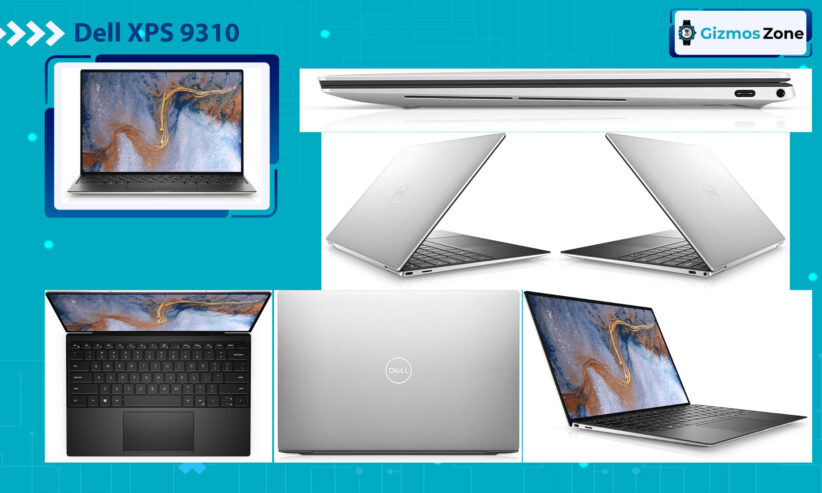
The Dell XPS 9310 comes out into the markets with some really power-packed specs. It features an 11th generation Intel Core i7, and if that is not impressive enough, it also features a 32 GB RAM. Together, these two will make sure that you can run multiple virtual stations on one laptop. Virtual machines also need a lot of space as you have to install multiple operating systems in one PC. This laptop comes with 2 TB of SSD storage, which makes sure that you never run out of space.
The laptop features a platinum-silver build and has a very smooth and slim construction. It feels very premium when you use it. The keys are well spaced and you can type for long hours on it. The design style is quite minimalist and there are very few obstructions on the body of the laptop. It features a 13.4-inch display, and comes with Intel Iris Xe graphics.
Another really interesting thing about this Dell laptop is that it guarantees a free upgrade to Windows 11 as and when it becomes available. The laptop is WiFi 6 and Bluetooth 5 enabled. Interestingly, the Dell XPS 9310 also comes with built-in support for Alexa, which allows you to control a lot of things using voice – such as music playback, opening certain apps, etc. The laptop provides between 12 to 14 hours of battery life, which is also pretty impressive.
Pros
- Really powerful CPU and 32 GB of RAM
- A very large 2 TB storage
- Premium metallic body
- Works on the fast WiFi 6 standards
- Provides 12 to 14 hours of battery life
Cons
- Display could have been larger
Frequently Asked Questions (FAQs) About Laptops for Virtualization
Here are the answers to some of the most common and frequently asked questions when it comes to choosing the best laptop for virtualization needs. Do go through this section as these are some of the most popular doubts that people tend to have. We have collated them together here so that you can see the larger picture:
1. What are the minimum specs I’d need for a laptop for virtualization?
When you are looking for a laptop that is specifically for running virtual machines, you need a very powerful machine. Even your minimum specs should be a basic (6th gen or above) Intel Core i7 processor, at least 16 GB of RAM, and an SSD-based storage, preferably of 256 GB or higher. Considering that you will be running multiple operating systems in one computer at the same time, the specs need to be high enough to handle that.
2. Which are some of the best Virtual Machine software in 2023?
VMWare has been one of the finest names in the business and has an expertise of over 2 decades behind it. Those looking for a good solution for their MacBooks should check out Parallels Desktop. Other options include Microsoft Hyper-V, VirtualBox, QEMU, etc. Basically, in 2023, there are a lot of options that you have when it comes to running a virtual machine on your laptop – no matter what operating system you are on!
3. What is more important in a Virtual Machine laptop – the processor or the RAM?
Some people mistakenly believe that RAM is more important than the processor when it comes to running virtual machines. However, the truth is that both the RAM as well as the processor need to be equally powerful. An ideal combination should be that of the latest generation Intel Core i7 processor along with 32 GB RAM. However, older generations of the i7 processor and 16 GB of RAM do the job as well.
4. Why are the best laptops for virtualization so expensive?
Given that you need laptops with high-end specifications to run virtualization software and Virtual Machines, the cost automatically rises. You need a lot of storage, a powerful RAM, and the latest and the most high-power processor available. This three account for the biggest expenses.
5. Where can I buy the best laptops for running virtual machines in 2023?
While there’s always the option to head over to your nearest computer shop or a multi-brand retail store to purchase a laptop for running virtual machines, we would strongly recommend buying online via Amazon, as you get good discounts, easy returns and fast delivery. We have linked all the laptops on our list directly to Amazon so that you can order in just one click!
6. Can gaming laptops use virtualization?
The process of running virtual machines on a laptop to manage storage systems and running another processor than Windows is called virtualization. Yes, gaming laptops can use virtualization because of their powerful specifications. Gaming laptops have high RAM and processors to handle the heavy lift, and thus they are the cheap option to run multiple VMs. Apart from gaming laptops, you can use Workstations for virtualization, but they won’t perform as good as gaming laptops.
One of the best gaming laptops you can use for virtualization is Acer Predator Helios 300. Its 10th Generation Intel Core i7 CPU and 16GB RAM makes it ideal for virtualization. Its six cores and 5GHz clock speed can easily handle the running of multiple VMs without lagging.
7. Is the Ryzen Processor suitable for virtualization?
Yes, Ryzen processors are powerful and efficient for virtualization, just like the Intel core processors. This is because the Ryzen processor comes with more cores, threads, and high clock speed to run virtual machines on a single device efficiently. Both AMD Ryzen 7 and Ryzen 9 work like a charm for virtualization purposes as they come with enough cores and threads to handle multiple machines running simultaneously.
AMD Ryzen 7 is one of the most valuable and affordable processors in the market for virtualization. It comes with eight cores and 16 threads to offer you 4.7GHz Boost Clock speed for lag-free operations. Compared to other processors, it is more power-efficient and emits less heat. If you want more cores and clock speed, then you can go for AMD Ryzen 9. It offers you 12 cores and 24 threads with 4.8GHz turbo clock speed. It is a powerful CPU with overclocking ability to run multiple virtual machines efficiently.
8. Is it safe to enable virtualization on your device? Why is it disabled by default?
Yes, it is safe to enable virtualization in your device, but for that, your device must have enough RAM (16 GB at least ) and a strong processor (minimum intel core i5 or AMD Ryzen 5). When you enable virtualization in your device, it utilizes the CPU power to run your Operating System more smoothly and faster.
Now, let’s understand why virtualization is disabled by default in most devices. As we all know, running virtual machines on a single device requires high CPU loads. The CPU requires more power than its normal operations for the virtualization process. So, by keeping it enabled all the time, the device will use more CPU power, resulting in performance degradation. Thus, virtualization is disabled by default in the BIOS system to keep your device power-efficient and safe. When required, you can enable it to take advantage of it in a few simple steps.
Conclusion
If you are a developer, coder, or a professional who needs to switch between different operating systems, getting one of these laptops should help you become more productive at your work. These laptops are also a good choice for someone who needs a high-power laptop for other needs such as gaming or video editing, but we’ve selected them purely on the basis of how well they perform when it comes to running virtual machines.
Do let us know if you found these laptops to be useful, or if you purchased one of them from our list. We would also love to know if there are any other laptops that you are using and want us to add to our list. Let us know over the comments section or drop us a mail and we shall get that done!
Contents
